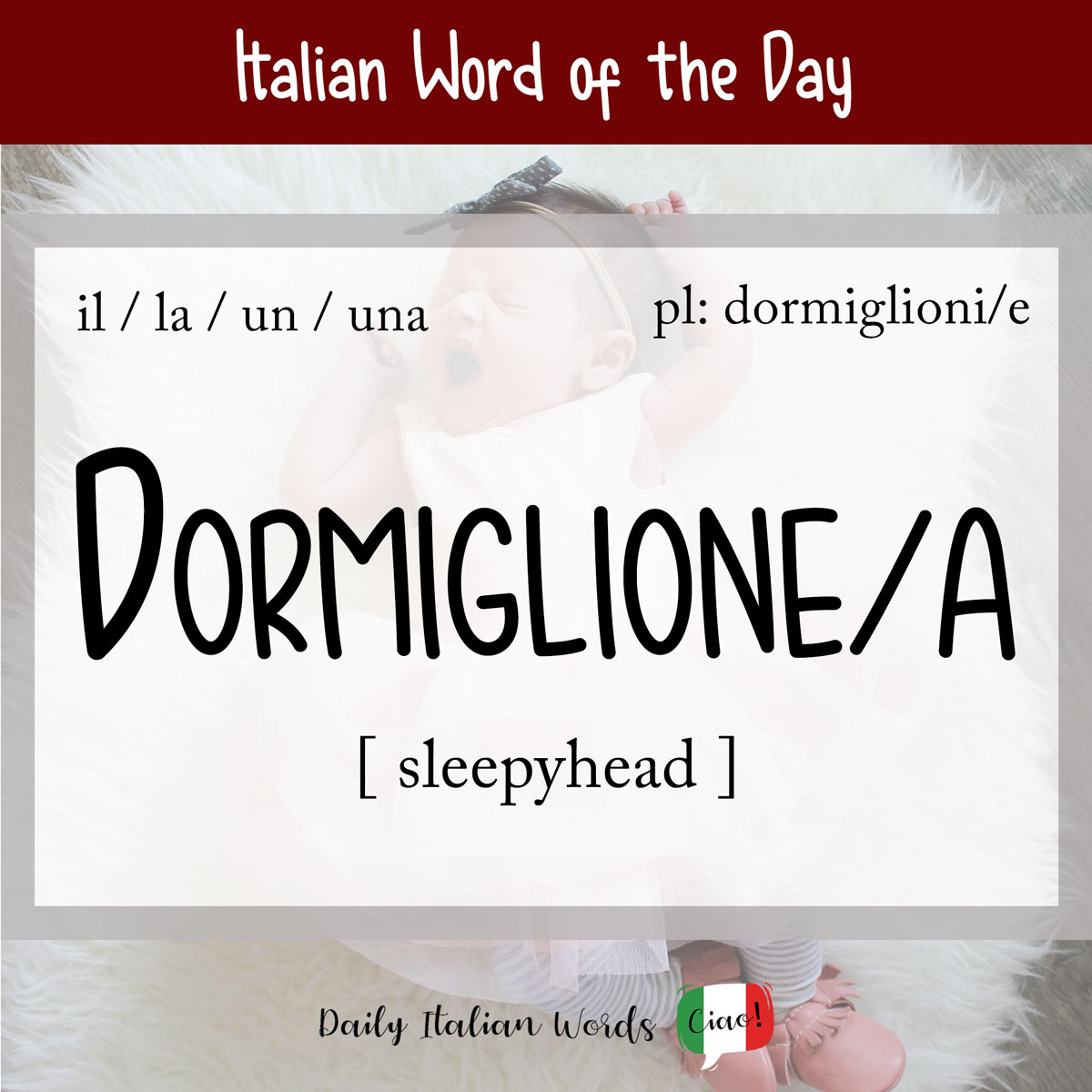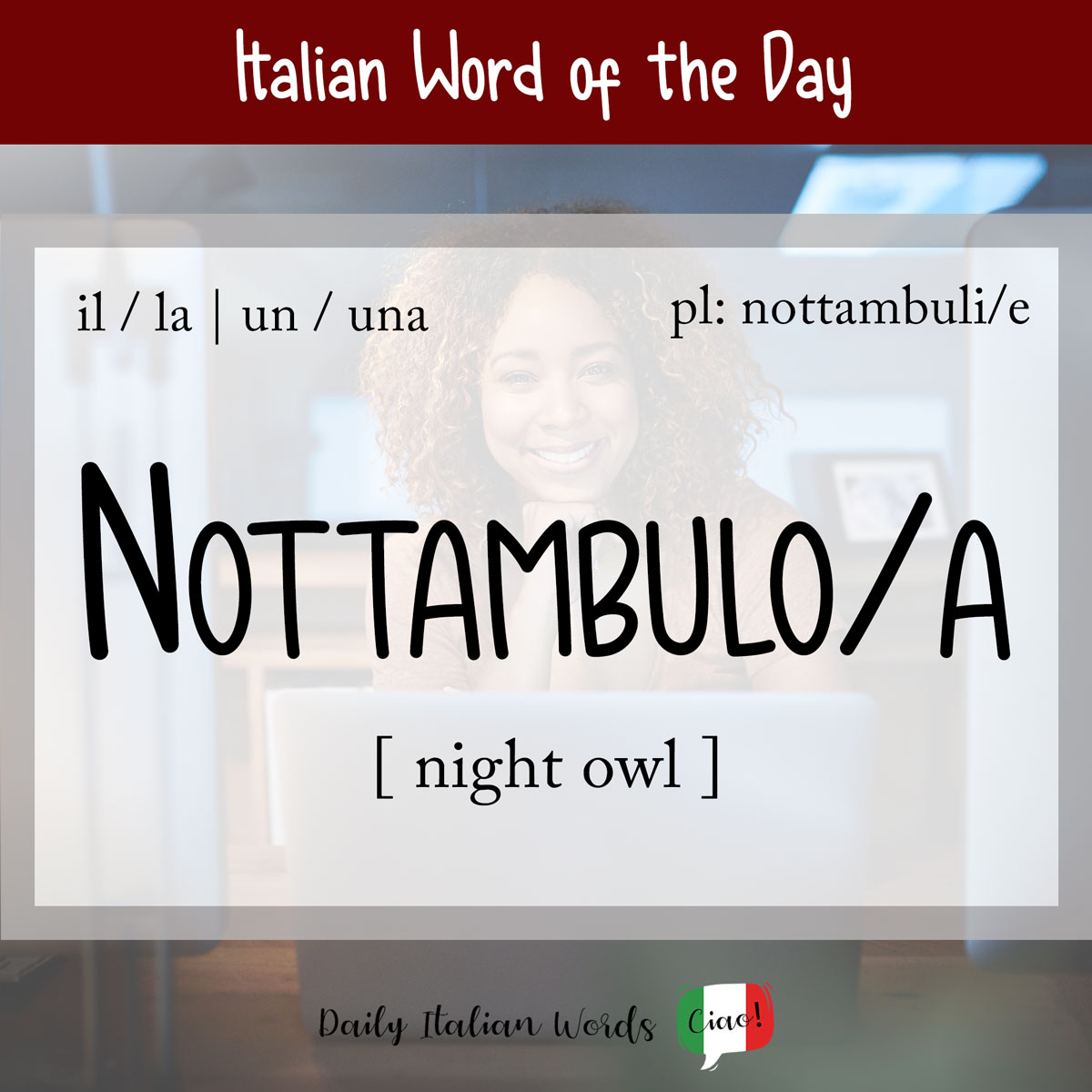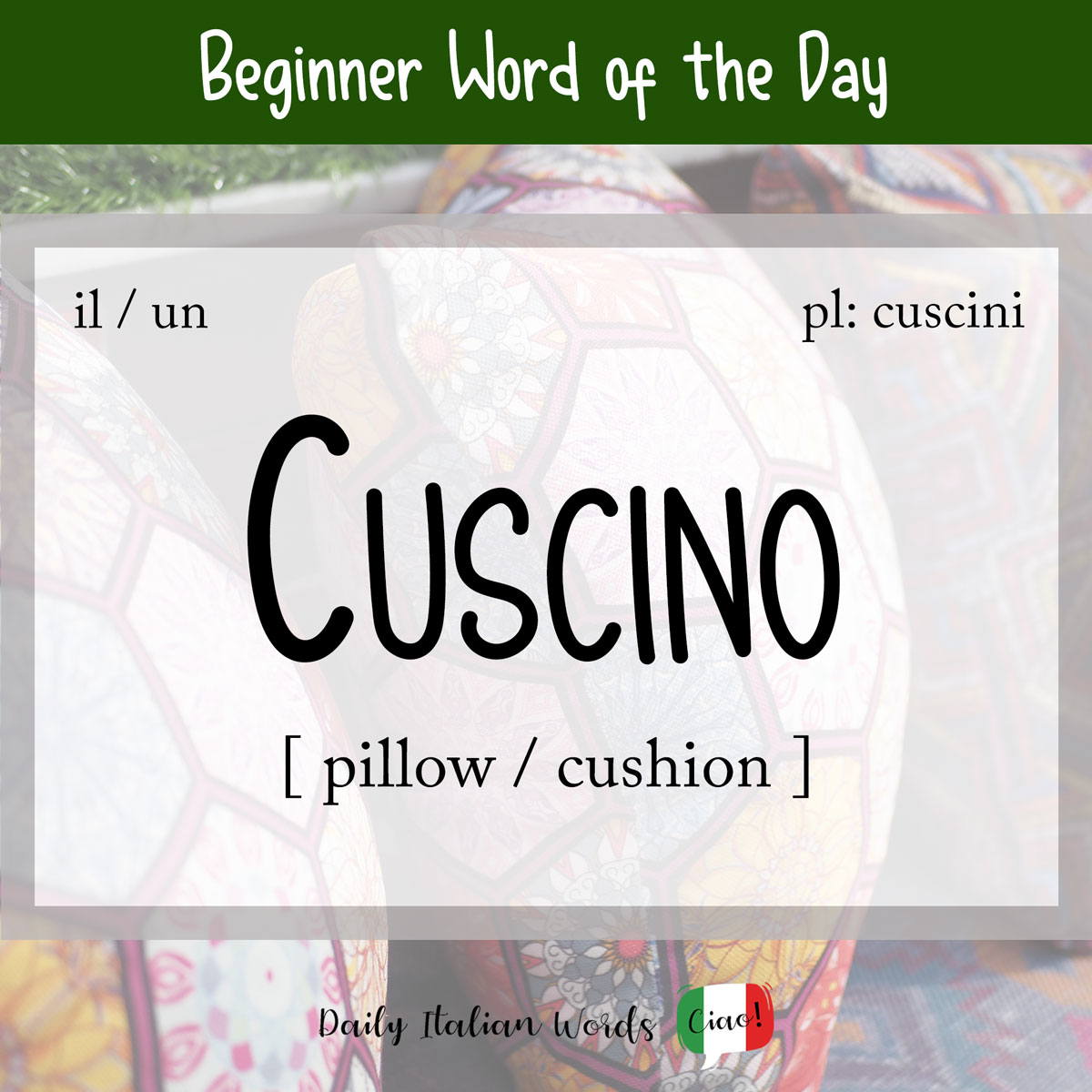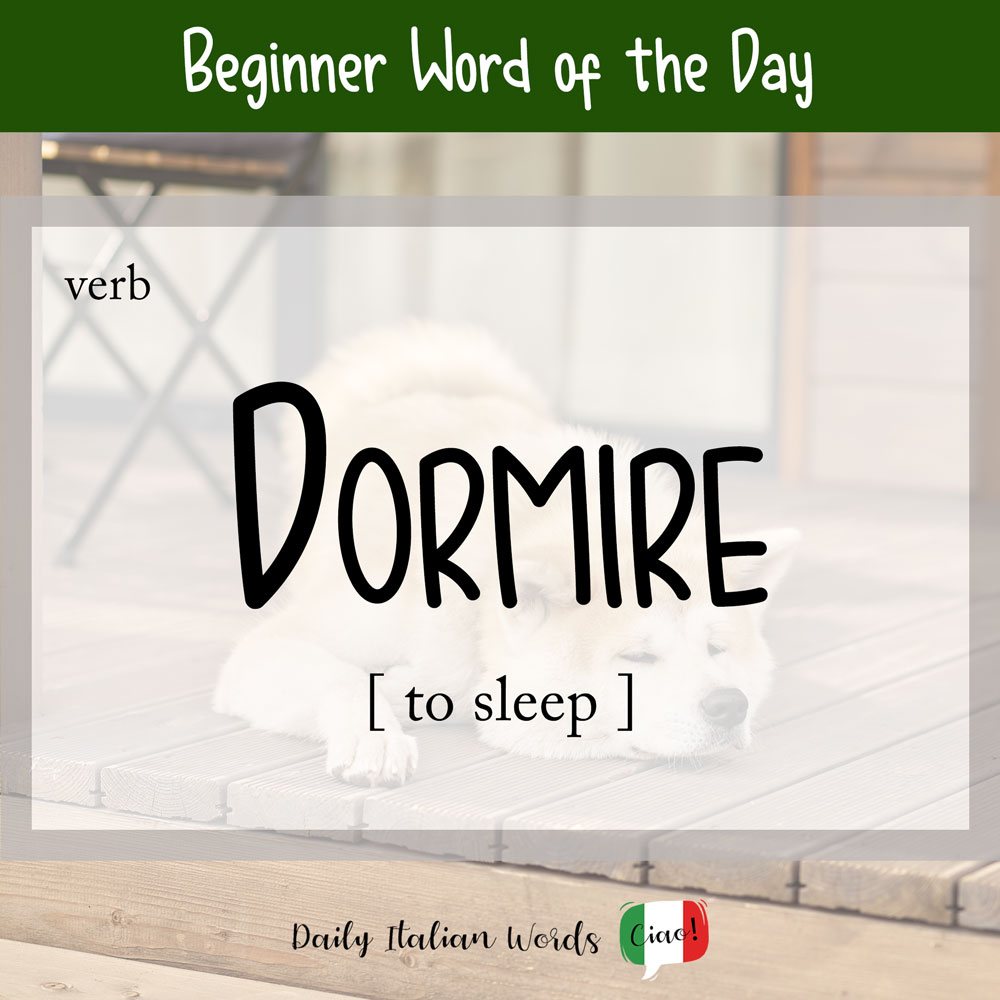Italian Word of the Day: Dormiglione (sleepyhead)
A noun that describes someone who loves sleeping, or habitually sleeps in a lot, especially in the morning, is dormiglione (masculine, plural dormiglioni) or dormigliona (feminine, plural dormiglione) in Italian. The best translations are sleepyhead and late riser. Today’s word is the combination of the verb dormire (to sleep) and the suffix -one which is …






